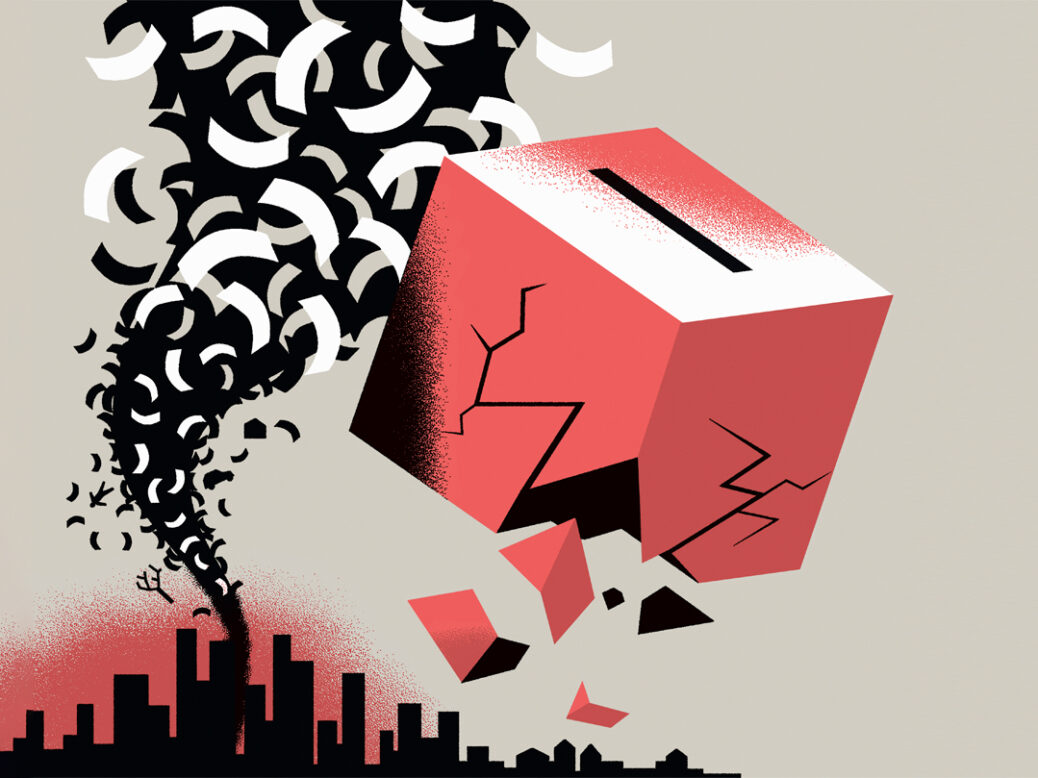
In January 2020, as Boris Johnson basked in his election victory, young Conservative activists began to share Gatsby-era memes. The “Roaring Twenties”, they declared, were back. After the anaemic 2010s, a new decade of prosperity beckoned.
I sounded a note of scepticism: “2020 is already awash with dispiriting signs,” I wrote, noting the rise of authoritarian nationalism (including in the US and Russia), the climate crisis and Brexit. “After more than a decade of consistent, if stagnant, economic growth, the UK and the world will be fortunate to escape the next decade without a new recession,” I concluded.
So it proved. Few anticipated that a global pandemic would be the cause but the pessimists were vindicated. The world, mostly without realising it, had been chancing its luck. Something bad usually turns up.
These are the times that Labour must now contend with. When I interviewed Paul Johnson, the director of the Institute for Fiscal Studies, shortly before Rachel Reeves’ first Budget, he suggested that Labour “might get lucky” on growth. “I think we are finally escaping the long shadow of the financial crisis; we forget just how big a shadow that’s cast across all economies, ours more than most.” But he sensibly added a caveat: “Of course, Labour might not get lucky. Who knows what happens if there’s a trade war post-Trump.”
Rachel Reeves has not got lucky. Last night, as she and her Treasury team sought to talk up the UK’s economic prospects, they were rudely interrupted by Donald Trump. A tariff of 25 per cent, he announced, would be imposed on all cars not manufactured in the US. The Office for Budget Responsibility (OBR) had already warned that the tariffs planned by Trump on 2 April – which cabinet ministers are striving to avoid – could reduce UK growth by 0.6 per cent (and by 1 per cent if Britain retaliates). There is a 50-50 chance that Reeves will need to cut spending or raise taxes again to meet her fiscal rules.
The Spring Statement was not without its positive notes. John Van Reenen, the heterodox chair of Reeves’ Council of Economic Advisers, is credited by Treasury sources with persuading the OBR to “score” the government’s planning reforms. These are forecast to boost growth by more than any single measure since 2010: 0.2 per cent in 2029-30 and 0.4 per cent within ten years.
But this does not alter the wider outlook. Though the OBR has upgraded its GDP forecasts for future years, growth will peak at 1.9 per cent – far below what previous generations would have considered acceptable (and, remember, the OBR has tended to err on the side of optimism).
As a consequence, politics will remain fraught and elections volatile. Previous governments sailed through much more comfortable waters than this one. Margaret Thatcher enjoyed the bounty of North Sea oil (and one-off privatisations) – liberating her to cut taxes and raise police pay by 45 per cent in a single year. New Labour rode the wave of the longest continuous global economic expansion in history (the UK’s last budget surplus was in 2001-02). Tony Blair and Gordon Brown could offer the bargain of European-style public services and US-style taxes.
But ever since the 2008 crash, politics has been a zero-sum game. In an age of mediocre growth, politicians who want to increase public spending must raise taxes; those who want to cut taxes must reduce spending. The decline of the post-Cold War “peace dividend” has only intensified Labour’s fiscal nightmare.
As a distillation of our economic woes, consider this. We are now midway through the “Roaring Twenties” yet GDP per capita is 1.1 per cent lower than at the end of 2019. Living standards are forecast to rise by just £1,200 across the 2020s. In a surreal twist of fate, the 2010s look abundant by comparison (living standards rose by £2,900).
How did the Conservatives win four general elections in an age of austerity? The ultra-low interest rates enjoyed by their home-owning base are part of the answer. Those days have gone though, not because, as once hoped, growth has returned but because the beast of inflation has.
The 1980s, it is said somewhat unfairly, were the decade that taste forgot. Consider the 2020s the decade that growth forgot.
This piece first appeared in the Morning Call newsletter; receive it every morning by subscribing on Substack here
[See also: Peacekeepers in a world without peace]



